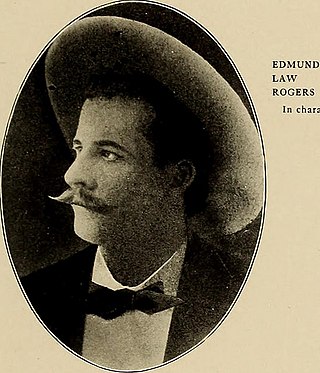
Memphis is a city and the county seat of Hall County, Texas, United States. As of the 2010 census, the population was 2,290.

The University of Memphis (Memphis) is a public research university in Memphis, Tennessee. Founded in 1912, the university has an enrollment of more than 22,000 students.

The Commercial Appeal is a daily newspaper of Memphis, Tennessee, and its surrounding metropolitan area. It is owned by the Gannett Company; its former owner, the E. W. Scripps Company, also owned the former afternoon paper, the Memphis Press-Scimitar, which it folded in 1983. The 2016 purchase by Gannett of Journal Media Group effectively gave it control of the two major papers in western and central Tennessee, uniting the Commercial Appeal with Nashville's The Tennessean.

The Memphis Flyer is a free weekly alternative newspaper serving the greater Memphis, Tennessee, area. The Flyer covers Memphis news, politics, music, entertainment, sports, food, and spirits.

The People's Grocery lynchings of 1892 occurred on March 9, 1892, in Memphis, Tennessee, when black grocery owner Thomas Moss and two of his workers, Will Stewart and Calvin McDowell, were lynched by a white mob while in police custody. The lynchings occurred in the aftermath of a fight between whites and blacks and two subsequent shooting altercations in which two white police officers were wounded.

Edmund Law Rogers, also known by the stage name Leslie Edmunds, was an American stage actor. He was also a founding father of the Kappa Sigma fraternity at the University of Virginia.

Lubbock Avalanche-Journal is a newspaper based in Lubbock, Texas, United States. It is owned by Gannett.
The Herald-Banner is an American three-day morning newspaper published in Greenville, Texas, covering Hunt County. It publishes on Tuesday, Thursday and Saturday.

The history of Memphis, Tennessee and its area began many thousands of years ago with succeeding cultures of indigenous peoples. In the first millennium, it was settled by the Mississippian culture. The Chickasaw Indian tribe emerged about the 17th century, or migrated into the area. The earliest European exploration may have encountered remnants of the Mississippian culture by Spanish explorer Hernando de Soto. Later French explorers led by René-Robert Cavelier, Sieur de La Salle likely encountered the Chickasaw. The city of Memphis was not founded until 1819. The city was named after the ancient capital of Egypt on the Nile River in North Africa.

The Memphis massacre of 1866 was a rebellion with a series of violent events that occurred from May 1 to 3, 1866, in Memphis, Tennessee. The racial violence was ignited by political and social racism following the American Civil War, in the early stages of Reconstruction. After a shooting altercation between white policemen and black veterans recently mustered out of the Union Army, mobs of white residents and policemen rampaged through black neighborhoods and the houses of freedmen, attacking and killing black soldiers and civilians and committing many acts of robbery and arson.

Samuel Bard was a United States politician, newspaper editor and served briefly as Governor of Idaho Territory.
The Catholic Standard & Times, published from 1895 to 2012, was the official newspaper of the Roman Catholic Archdiocese of Philadelphia.
The Owyhee Avalanche is a weekly newspaper in Homedale, Idaho, United States, which is published Wednesday mornings and serves the Owyhee County area of Southwestern Idaho.
The Memphis Daily Post was an African American daily newspaper that reported on the lives of freedmen in Memphis, Tennessee, after the American Civil War.
The following is a timeline of the history of the city of Memphis, Tennessee, US.
The 1943 Southwestern Louisiana Bulldogs football team was an American football team that represented the Southwestern Louisiana Institute of Liberal and Technical Learning as a member the Louisiana Intercollegiate Conference during the 1943 college football season. The Louisiana Intercollegiate Conference has no league play in 1943 because of World War II. Led by second-year head coach Louis Whitman, the Bulldogs compiled a record of 5–0–1, and outscored their opponents 172 to 40. In the Oil Bowl, Southwestern Louisiana defeated Arkansas A&M on a muddy field, a team that had tied them 20–20 earlier in the season. The Bulldogs played their home games at McNaspy Stadium in Lafayette, Louisiana.










